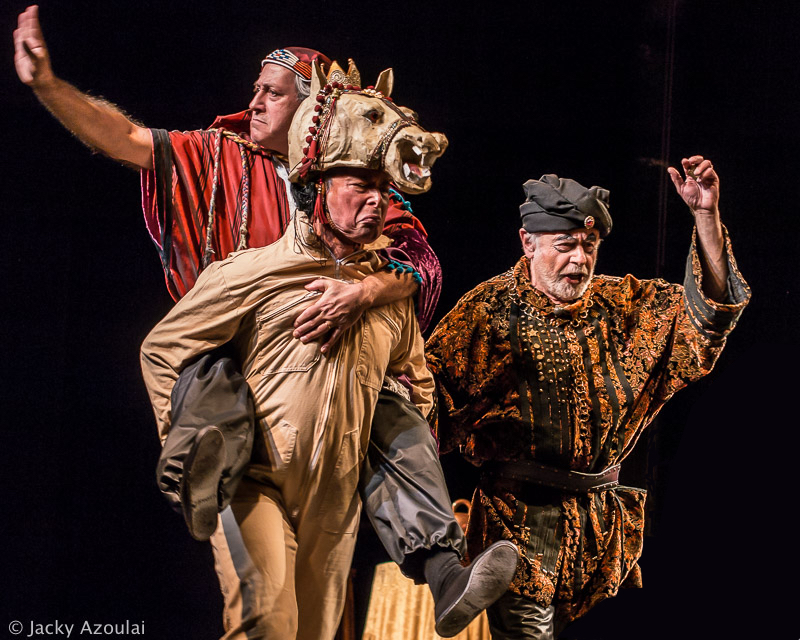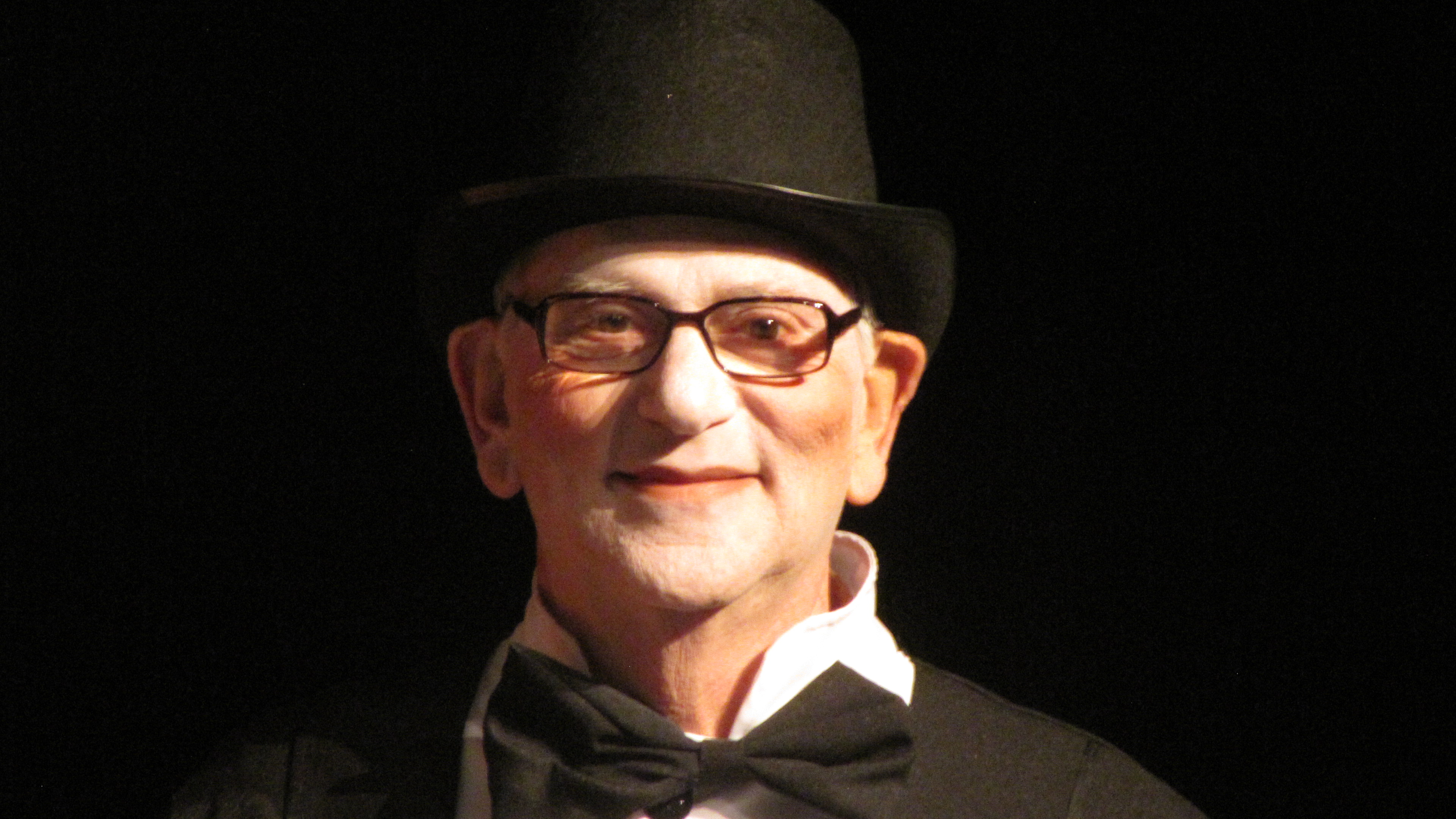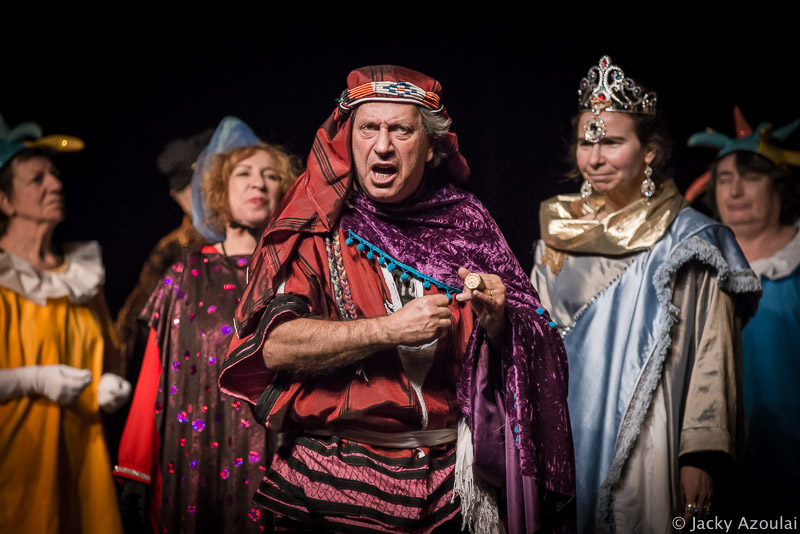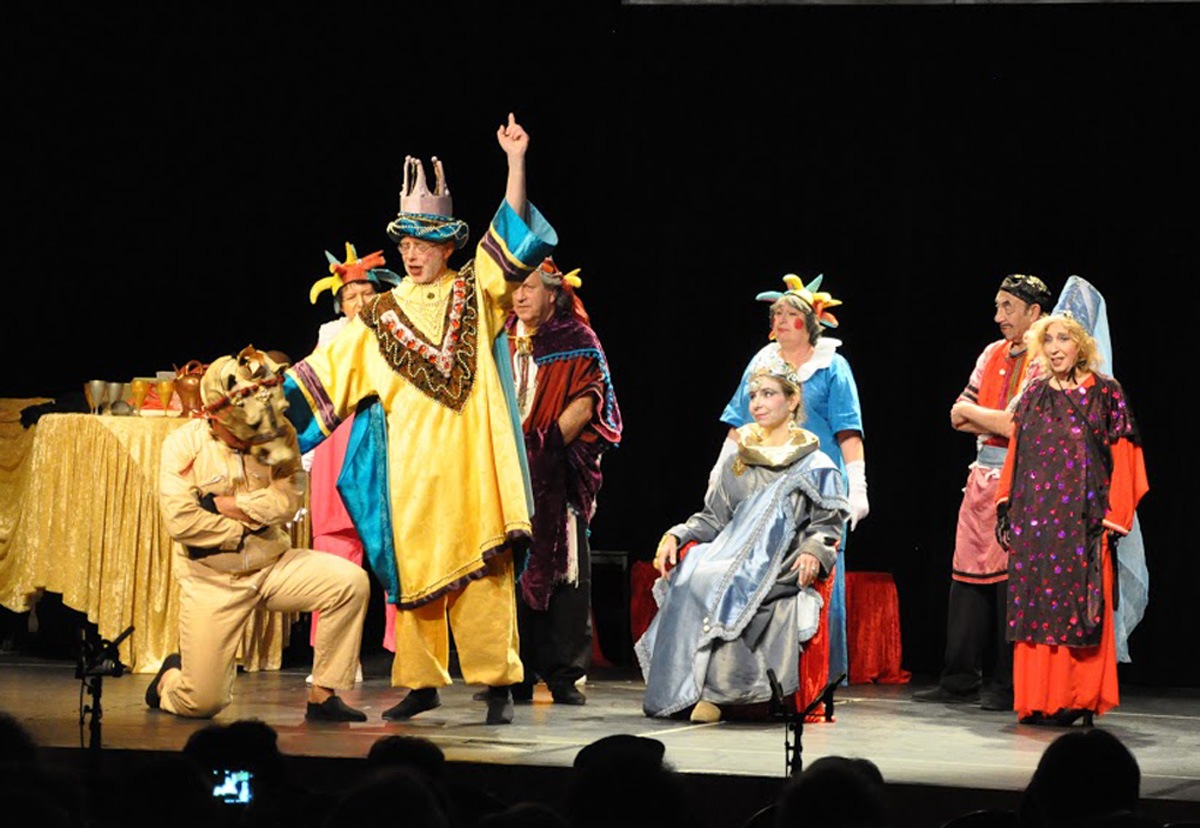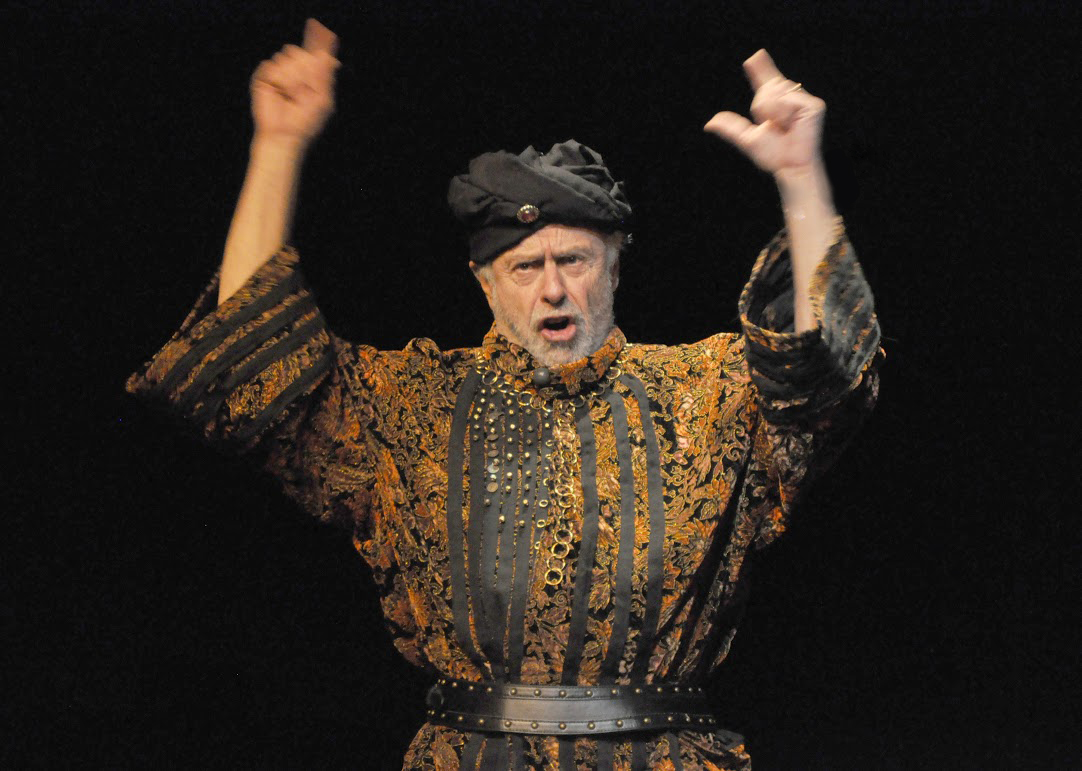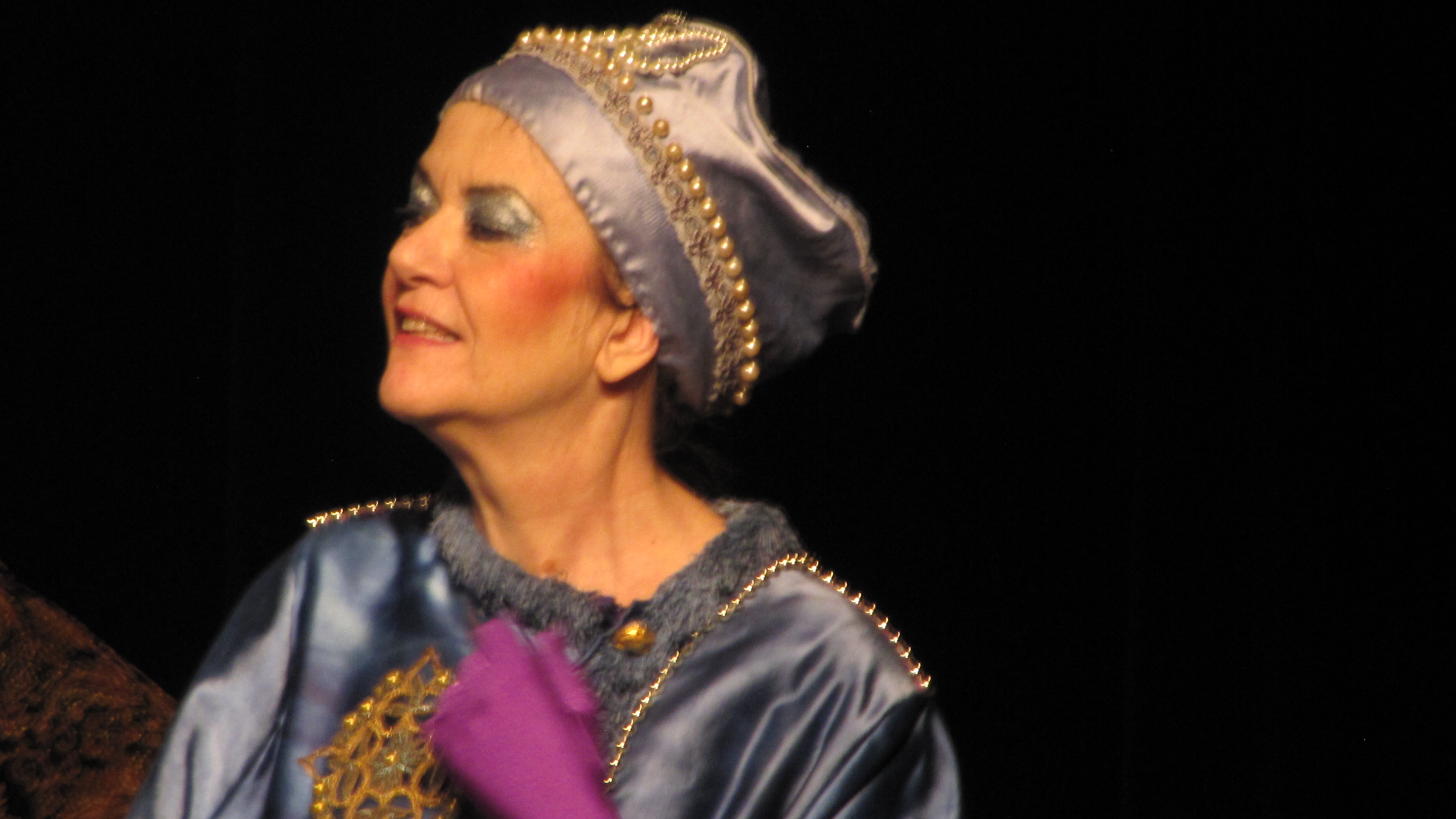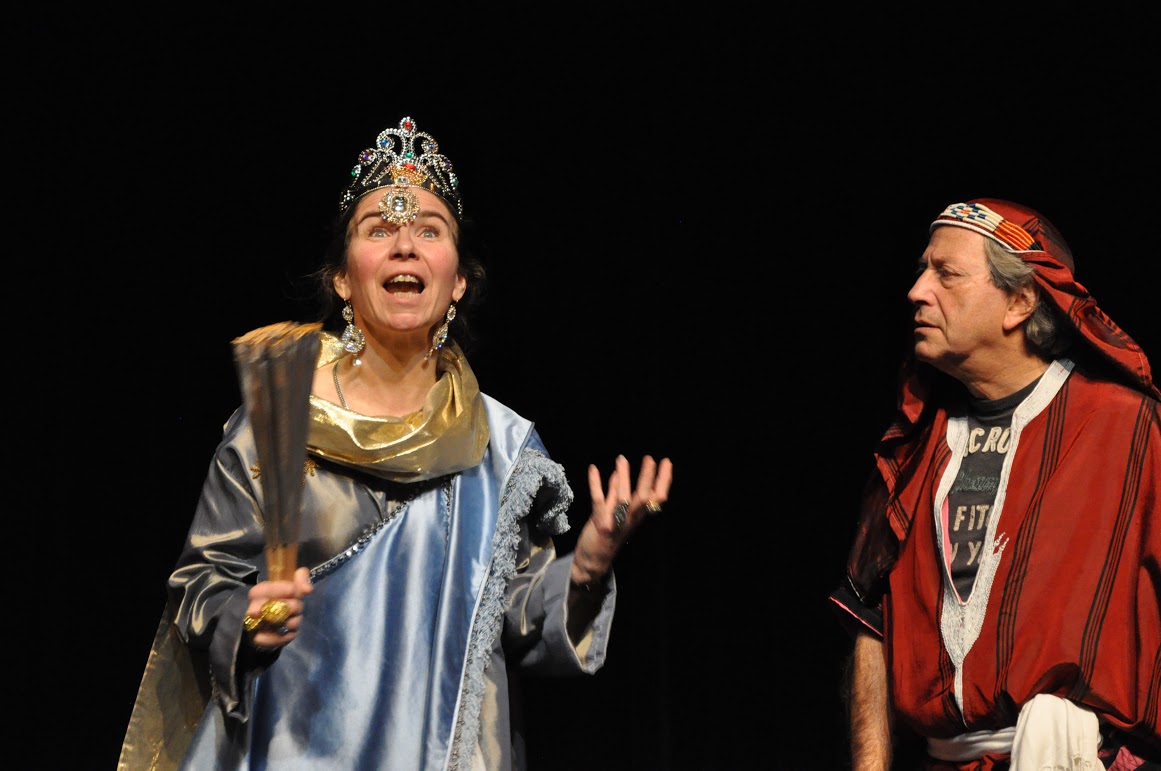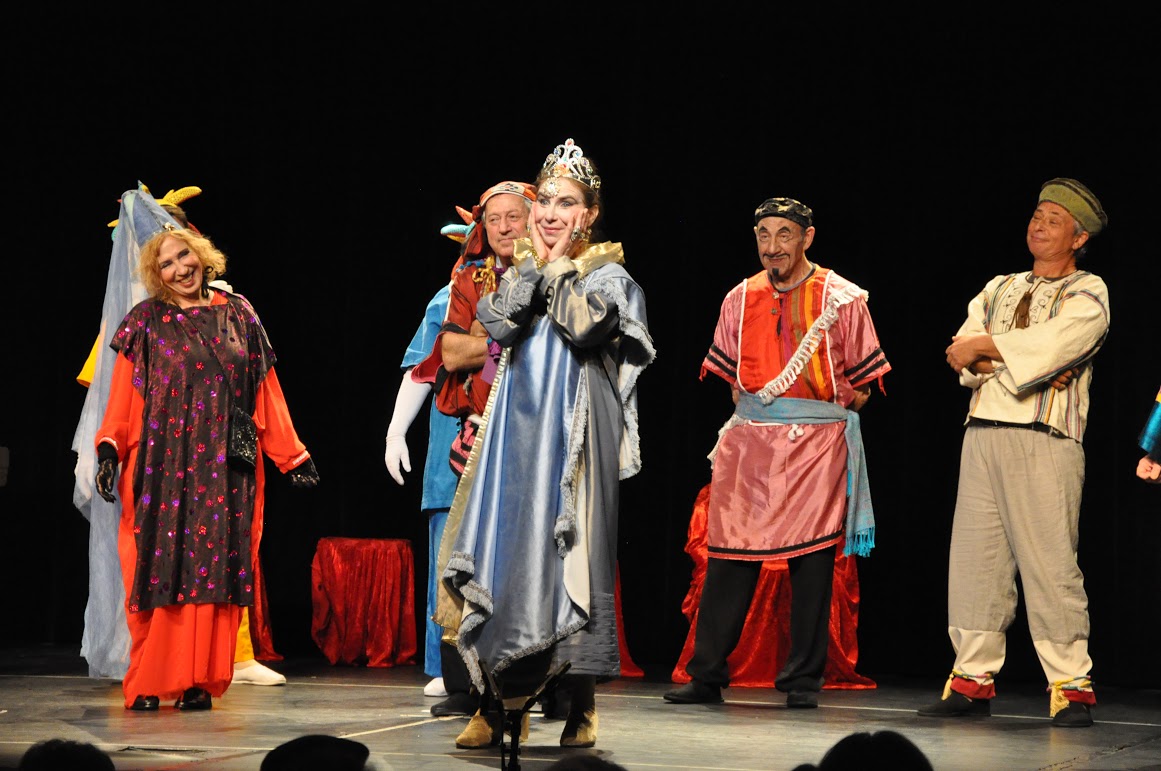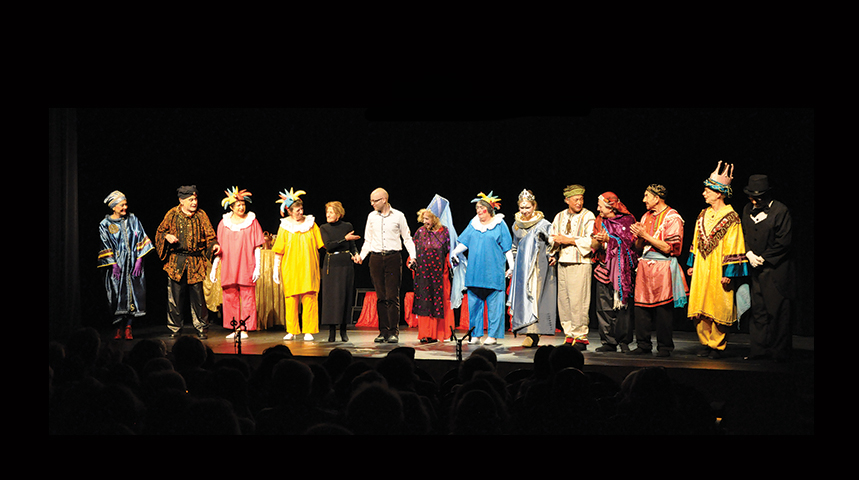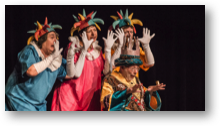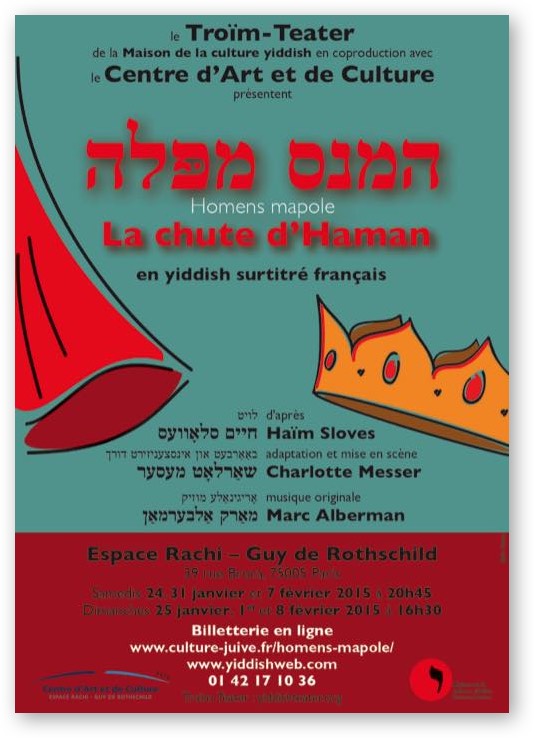
HOMENS MAPOLE
HAMAN'S FALL
HAÏM SLOVES
HAMAN'S FALL
HAÏM SLOVES
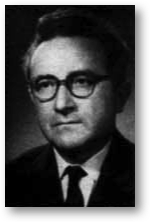
A playwright, a columnist and a lawyer, Haim Sloves was an example of those players of the Yiddish world, whose life was full of paradoxes.
A committed activist, he joined the Communist Youth in his native city of Bialystok (Poland) at the age of 15. In 1926, persecuted for his political activity, he fled to Paris (France), where he lived until his death in 1988, and where he wrote several books and theatre plays in Yiddish.
While remaining a Communist activist, he fought against the Soviet dogmatism during the cold war, and defended the Yiddish culture. In 1979 he published in Yiddish Sovetishe yidishe melukhishkayt (The Jewish Statehood in the Soviet Union), which still is a reference work on the history of Borobidjan.
Deeply attached to the Jewish destiny, through his theatrical work he wished to participate in the emergence of a modern Jewish culture, « progressist », according to the established vocabulary, and heiress of the traditional Jewish art.
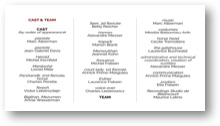
CAST & TEAM
CAST
(by order of appearance)
pianiste
Marc Alberman
pianiste
Jean-Gabriel Davis
Hérold
Michel Kornfeld
Mardoché
Lionel Mille
Parshandti, 2nd fiancée, horse
Charles Perelle
Teresh
Victor Lebensztejn
Bigthan, Mezumen
Annie Wasserman
Seer, 3d fiancée
Betty Reicher
Haman
Alexandre Messer
Kaparti
Marion Blank
Memoukhan
Jeannet Kohn
Assuerus
Michel Fisbein
court lady, 1st fiancée
Annick Prime-Margules
Esther
Laurence Fisbein
voice over
Charles Leizerowicz
TEAM
original music
Marc Alberman
costumes
Mireille Babonneu-Arth
horse head
Cécile Trémolière
the gatehouse
Laurence Buchwald
administrative and technical coordination, creation of supertitles
Alexandre Messer
communication
Annick Prime Margules
posters
Elia Fisbein
Recordings Studio de Billancourt
Maurice Latino
CAST
(by order of appearance)
pianiste
Marc Alberman
pianiste
Jean-Gabriel Davis
Hérold
Michel Kornfeld
Mardoché
Lionel Mille
Parshandti, 2nd fiancée, horse
Charles Perelle
Teresh
Victor Lebensztejn
Bigthan, Mezumen
Annie Wasserman
Seer, 3d fiancée
Betty Reicher
Haman
Alexandre Messer
Kaparti
Marion Blank
Memoukhan
Jeannet Kohn
Assuerus
Michel Fisbein
court lady, 1st fiancée
Annick Prime-Margules
Esther
Laurence Fisbein
voice over
Charles Leizerowicz
TEAM
original music
Marc Alberman
costumes
Mireille Babonneu-Arth
horse head
Cécile Trémolière
the gatehouse
Laurence Buchwald
administrative and technical coordination, creation of supertitles
Alexandre Messer
communication
Annick Prime Margules
posters
Elia Fisbein
Recordings Studio de Billancourt
Maurice Latino
HOMENS MAPOLE
In Homens mapole as in the Bible, Queen Esther, after her marriage to Ahasuerus, King of Persia, foils the evil plot of the cruel and arrogant Haman and saves the Jewish people.
But the play, with its songs, humor and fantasy, carries the spectator into the carnival of Purim, festival of resistance and transgression, glorifying the hope that sustains the Jewish people in their times of adversity. It is built on the model of a Purimshpil, the folk play created to entertain the Jewish public on the occasion of this holiday. Written in 1940 by Haim Sloves (1905 - 1988), then greatly modified after the French Liberation, the play was staged in the years immediately after the war by some of the finest actors of the Yiddish theater, notably Oscar Fessler and Zygmunt Turkow. Between 1946 1949 it was played many times in Paris, New York, Los Angeles, Wrocław, Rio de Janeiro and Buenos Aires.
Homens mapole was seen in its time as a message of resilience for the survivors. Reviving this play 70 years later is to show once again a classic of Yiddish farce that resonates today with newfound timeliness.
In Homens mapole as in the Bible, Queen Esther, after her marriage to Ahasuerus, King of Persia, foils the evil plot of the cruel and arrogant Haman and saves the Jewish people.
But the play, with its songs, humor and fantasy, carries the spectator into the carnival of Purim, festival of resistance and transgression, glorifying the hope that sustains the Jewish people in their times of adversity. It is built on the model of a Purimshpil, the folk play created to entertain the Jewish public on the occasion of this holiday. Written in 1940 by Haim Sloves (1905 - 1988), then greatly modified after the French Liberation, the play was staged in the years immediately after the war by some of the finest actors of the Yiddish theater, notably Oscar Fessler and Zygmunt Turkow. Between 1946 1949 it was played many times in Paris, New York, Los Angeles, Wrocław, Rio de Janeiro and Buenos Aires.
Homens mapole was seen in its time as a message of resilience for the survivors. Reviving this play 70 years later is to show once again a classic of Yiddish farce that resonates today with newfound timeliness.
